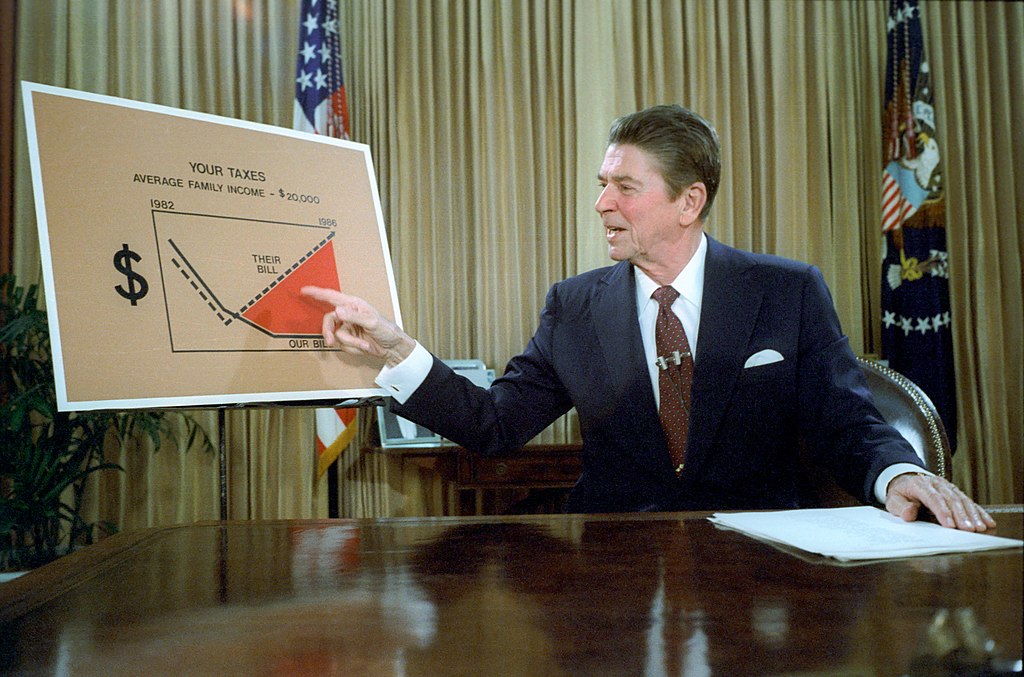Start of the conference: September 22, 2022 | 13.30 p.m.
Organized by: Priv.-Doz. Dr. Rüdiger Graf (Leibniz-Zentrum für Zeithistorische Forschung Potsdam) and Prof. Dr. Stefanie Middendorf (Friedrich-Schiller-Universität Jena)
Supported by the Fritz Thyssen Stiftung.
The economy and contradicting understandings of it have loomed large in political conflicts at least since the rise of liberalism and Marxism in the 19th Century. Various actors popularized and moralized economic relations in order to garner support for political change. In recent years, these processes have been discussed under the label of populism, as many observers diagnosed “populist” backlashes against liberal political and economic elites. In general, they consider the world economic crisis and its social consequences as the root cause for the growth of political movements that make use of various rhetorics of simplification. Calling them “populist”, however, is highly problematic. Populism is rarely used as a self-description and notoriously hard to define so that critics question the analytic value of the term.
At the conference, we aim at bringing together experts on the political history of (mainly) market economies over the course of the twentieth and twenty-first centuries. In order to avoid all too abstract and mainly conceptual discussions on the “populist” character of certain debates or movements, we are interested in scrutinizing the concrete ways in which popular and moral rhetorics have interacted historically with transformations of the economic life on a national as well as on an international level. The question how basic processes of democratization, globalization or financializiation have affected economic imaginaries in political conflicts will serve as a common background to our reflections.
On a methodological level, we are interested in understanding how popular representations of the economy are constructed and communicated by historical actors. In general, referring to the economy in political conflicts, seems to invite its depiction in a holistic manner. Thus, we will focus on those conceptualizations of the economy that refuse to accept the growing complexity of economic life as well as the resulting limits of individual and collective agency. Rather than conceding the confines and boundedness of their knowledge, these explanations of the economy – as well as politics and society – claim universal validity and lack ambiguities. Secondly, we are interested in understanding the power of personification in economic arguments and in gathering support for political agendas. The creation of bigger-than-life figures, assumed to reign over economic developments and social inequalities, is, thirdly, based on popular media structures and visual logics that will also be scrutinized at the conference. Finally, we want to look at the application of moral and binary reasoning to economic processes, depicting decision-making in the economic realm as an outcome of manichaeic antagonisms. To sum up, we are interested in determining both the structural and discursive elements as well as the political force of interventions which present a political economy for everybody.
Photo: Series: Reagan White House Photographs, 1/20/1981 - 1/20/1989Collection: White House Photographic Collection, 1/20/1981 - 1/20/1989, Public domain, via Wikimedia Commons
PROGRAM
SEPTEMBER 22, 2022
13.00-13.30 Arrival at ZZF
13.30-13.45
Welcome and Introduction
Rüdiger Graf and Stefanie Middendorf
Section I – In Search of Economic Populism
Legacies of Populism
Chair: Stefanie Middendorf
13.45 -15.15
- Jan Logemann, Political and Economic Populism in the United States around 1900: Ideas, Images, and Lasting Legacies
- Catherine Davies, Populist Critiques of Finance in the Late 19th and early 20th Century
15.15-15.45 Coffee Break
Populist Mobilization
Chair: Rüdiger Graf
15.45-17.15
- Maurice Cottier, More or Less Government Intervention? The Dilemma of the American Center-Left in the 1970s
- David Bebnowski, German Populism: The AfD as a Result of a Popularized Economy
17.15-17.30 Coffee Break
Section II – Popular Representations of “the Economy”
Approaching the Public
Chair: Jan Logemann
17.30-19.00
- Nicolas Delalande, The Populo as an Economist. The Popularization of the Economy in the French Satirical Press, from the 1880s to the 1930s
- Katarzyna Jarosz, Currency and Identity in Post-Soviet Space Seen Through the Lens of Museums
19.00 Conference Dinner
SEPTEMBER 23, 2022
Figures of Economic Power
Chair: Frank Bösch
9.15-10.45
- Marcus Böick, Hate Figure, Monster and Slaughterhouse: Detlev Karsten Rohwedder, the Treuhandanstalt and the Economic Reconstruction of Eastern Germany after 1990 as Extreme Examples of a Popular (Attention) Economy
- Stefanie Middendorf, Moral Being or Persona Ficta? Imagining the 'Creditor‘ in the Interwar Years
10.45-11.00 Coffee Break
Visualizing Economic Abstractions
Chair: Annette Vowinckel
11.00-12.30
- Simon Küffer, The Visual Rhetoric of Money – Aesthetics, Affects and Narratives in Contemporary Mass Media Images
- Monika Dommann, Container, Bezos, Ever Given: A Visual History of Logistics
12.30-13.45 Lunch Break
Section III – Political Conflicts and Economic Arguments
Controlling the Economy Across Borders
Chair: Marie Huber (Berlin)
13.45-15.15
- Rüdiger Graf, Controlling Global Flows. Oil and Data Companies as World Rulers
- Carina Moser, “People who don’t make anything, cannot buy anything” – The Free Trade Policy Debates in Politics and Media in the US in the 1990s
15.15-15.45 Coffee Break
Economic Extremism
Chair: Rüdiger Graf
15.45-17.15
- Quinn Slobodian, Investments for Survival: Goldbugs, Moneypocalypse, and the Rise of the Libertarian Right
- Philipp Müller, Populism or Class Struggle? Left-Wing Resistance to “Speculators” in Spain after Franco
17.15-18.00
Concluding Discussion
Conference Dinner
NACHLESE
Leibniz-Zentrum für Zeithistorische Forschung Potsdam
Humboldt-Raum
Am Neuen Markt 1
14467 Potsdam
or Online via Zoom
Thursday, September 22: https://us06web.zoom.us/j/87186488403?pwd=U01QVGprREJVNStERXpnWmppZzJyd…
Meeting-ID: 871 8648 8403
Kenncode: 460096
Friday, September 23: https://us06web.zoom.us/j/81927464749?pwd=YjRGay91aDZRUzI4ME5BZi9tSGpod…
Meeting-ID: 819 2746 4749
Kenncode: 211768
Interessierte können vor Ort oder online per Zoom teilnehmen.
Für die Teilnahme in Potsdam ist aufgrund der begrenzten Platzkapazität eine bestätigte Anmeldung erforderlich.
Bitte melden Sie sich per E-Mail bei Rüdiger Graf an: graf [at] zzf-potsdam [dot] de
Kontakt:
Priv.-Doz-. Dr. Rüdiger Graf
Leiter der Abteilung II Wissen - Wirtschaft – Politik
Leibniz-Zentrum für Zeithistorische Forschung Potsdam
Am Neuen Markt 1
14467 Potsdam
